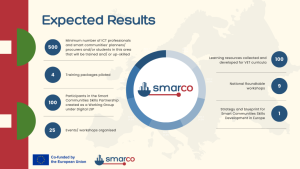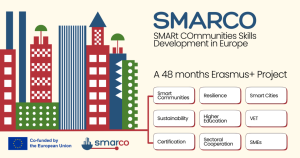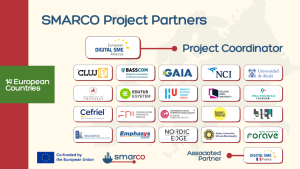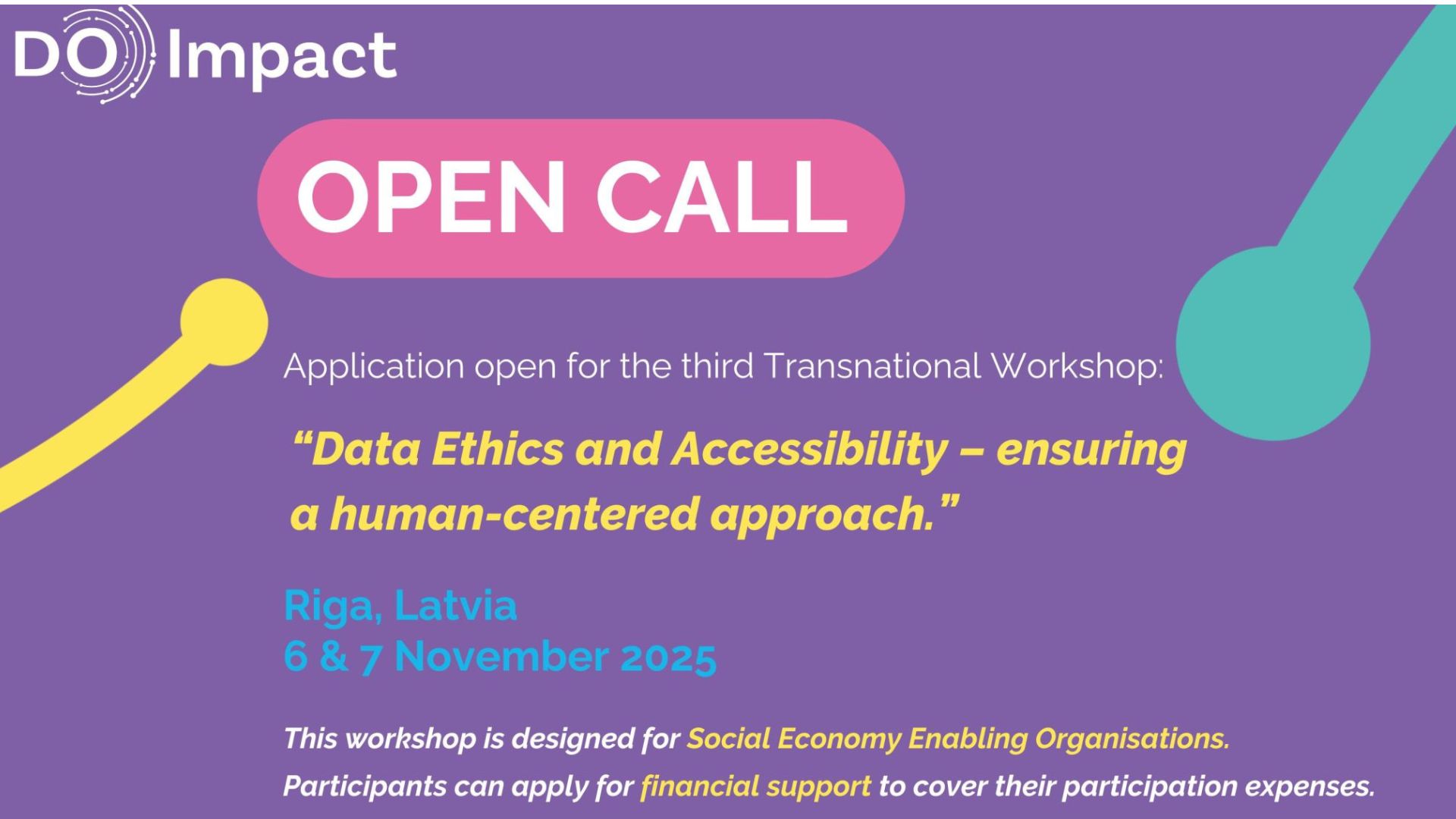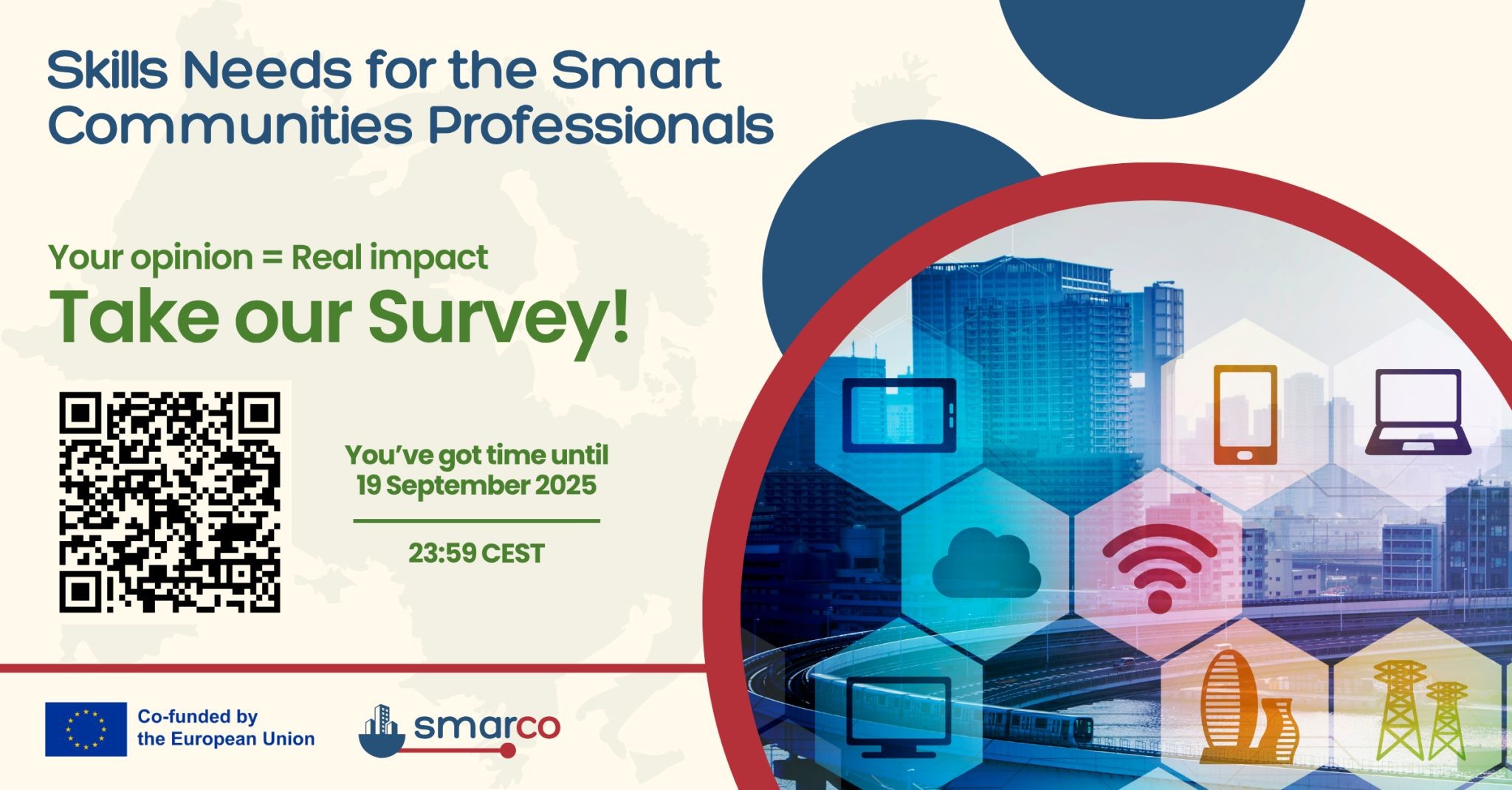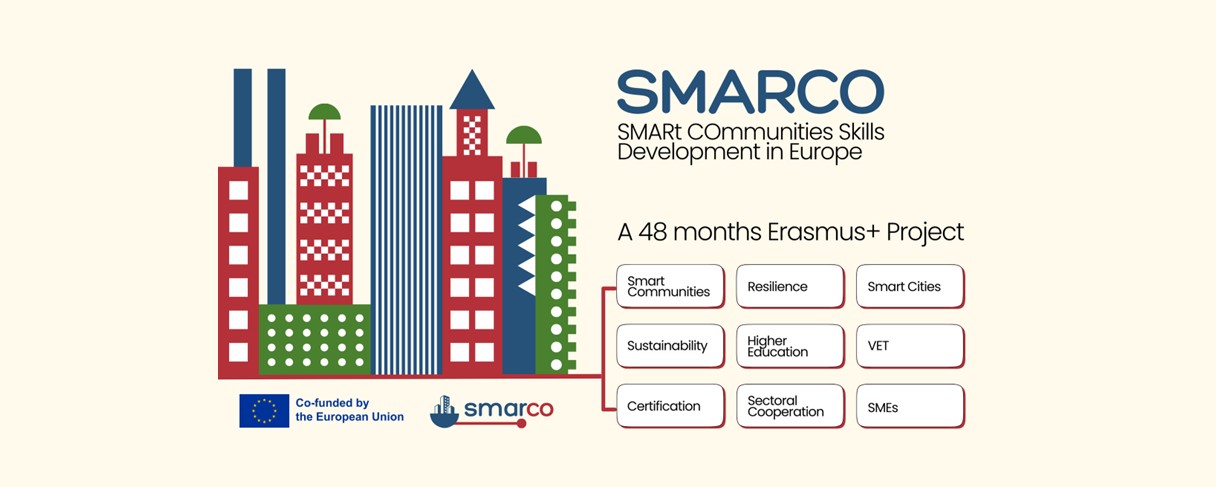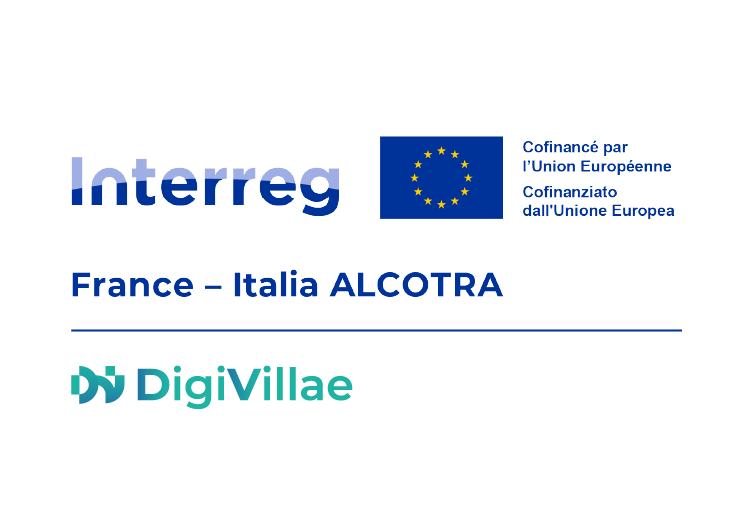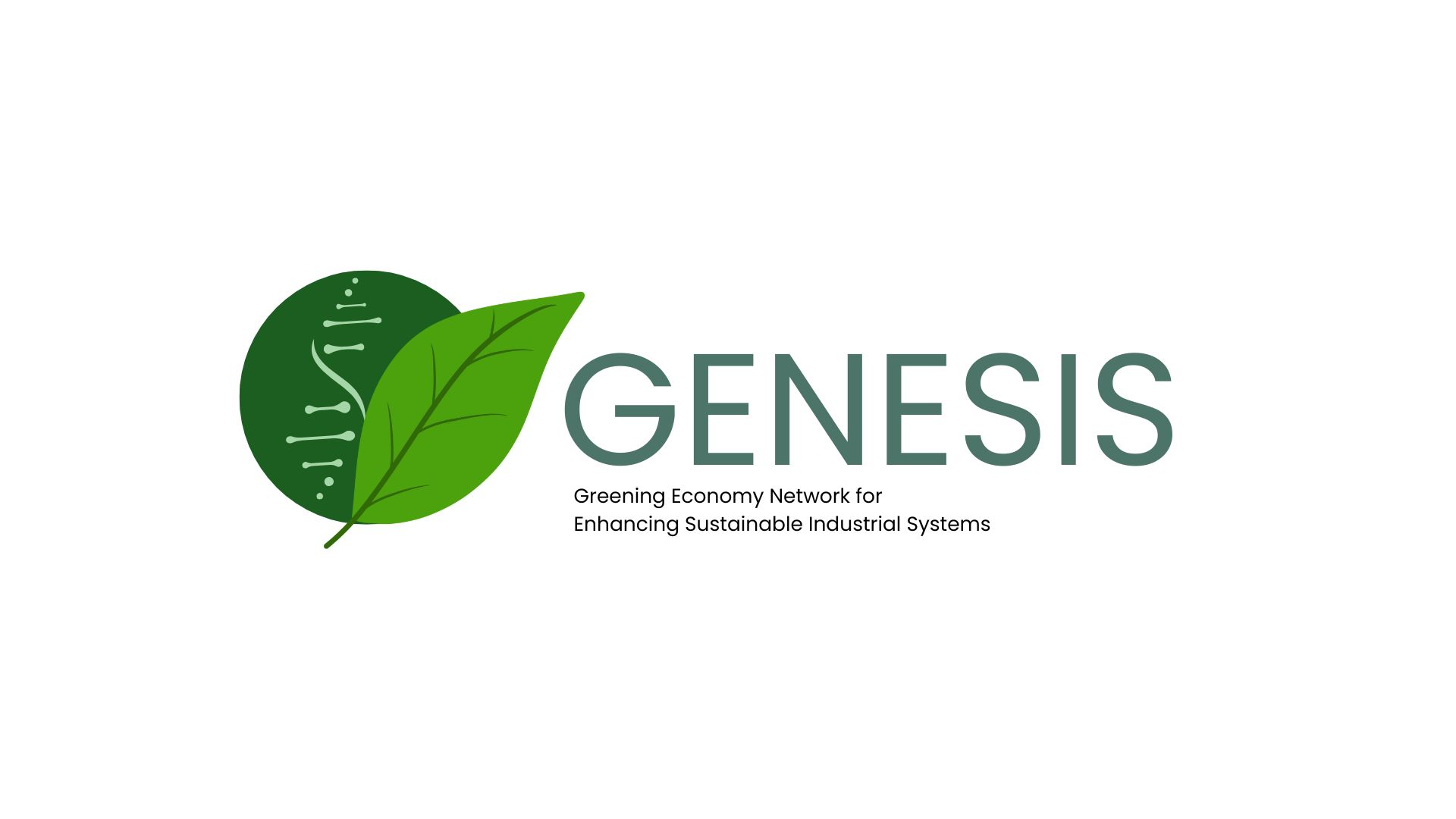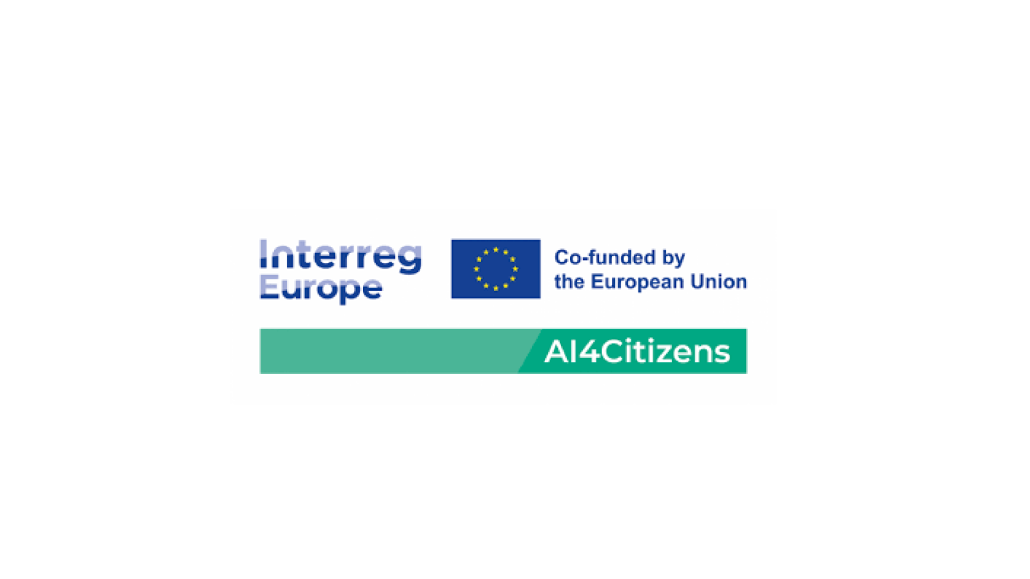![]()
Progetto Smarco
SMARt COmmunities Skills Development in Europe
Finanziato dall’Unione Europea. Le opinioni espresse sono tuttavia esclusivamente quelle dell’autore (o degli autori) e non riflettono necessariamente quelle dell’Unione Europea o dell’Agenzia esecutiva europea per l’istruzione e la cultura (EACEA). Né l’Unione Europea né l’EACEA possono essere ritenute responsabili di tali opinioni.
SMARCO (project number: 101186291) è un progetto Erasmus+ della durata di 48 mesi (2025–2029) che promuove lo sviluppo di comunità intelligenti più verdi, digitali e resilienti, con un forte focus sulla sostenibilità.
Il progetto nasce per rafforzare le competenze necessarie alla trasformazione digitale e sostenibile delle smart communities, coinvolgendo sia il mondo industriale sia quello della pubblica amministrazione.
SMARCO riunirà una rete europea di partner e stakeholder attorno a una nuova Smart Communities Skills Partnership, nell’ambito del Pact for Skills, offrendo strumenti concreti e percorsi formativi innovativi a supporto della transizione digitale ed ecologica.
COntatti
Contattaci e richiedi maggiori informazioni: info@piemonteinnova.it
Social
sito web
Website: www.smarco.eu
E-mail: info@smarco.eu
Highlight
Partner
SMARCO è coordinato dalla European Digital SME Alliance, con il contributo di CLUJ IT Cluster, BASSCOM, Cluster GAIA, National College of Ireland, Università di Alcalá, Università della Tessaglia, Edutus Egyetem, Hogeschool Utrecht, Hellenic Open University, Politeknika Txorierri, Cefriel, Fondazione Piemonte Innova, Österreichische Computer Gesellschaft, ENoLL, ATI, NCSR Demokritos, Centro Emphasys, Nordic Edge, Municipio di Nicosia, Forave e il partner associato DIGITAL SME France.
Obiettivi
SMARCO intende diventare un punto di riferimento unico per le competenze legate alle smart communities, con un focus su tre obiettivi principali:
-
garantire lo sviluppo di smart communities resilienti e sostenibili, colmando le lacune di competenze di ingegneri, urbanisti e responsabili degli appalti attraverso corsi di aggiornamento urgenti e programmi formativi orientati al futuro;
-
offrire percorsi di apprendimento flessibili e centrati sull’utente, con una dimensione transnazionale e opportunità di mobilità, oltre a un ampio riconoscimento della formazione grazie allo sviluppo di micro-credenziali, attestati e un sistema di certificazione più ampio;
-
creare una comunità sostenibile di stakeholder per discutere, condividere e ampliare iniziative di formazione, upskilling e reskilling legate alle competenze per le smart communities, promuovendo le buone pratiche attraverso la partecipazione al Pact for Skills (e al relativo ecosistema digitale su larga scala).


